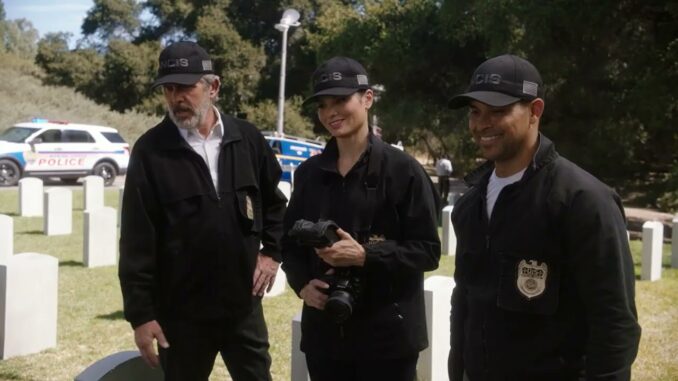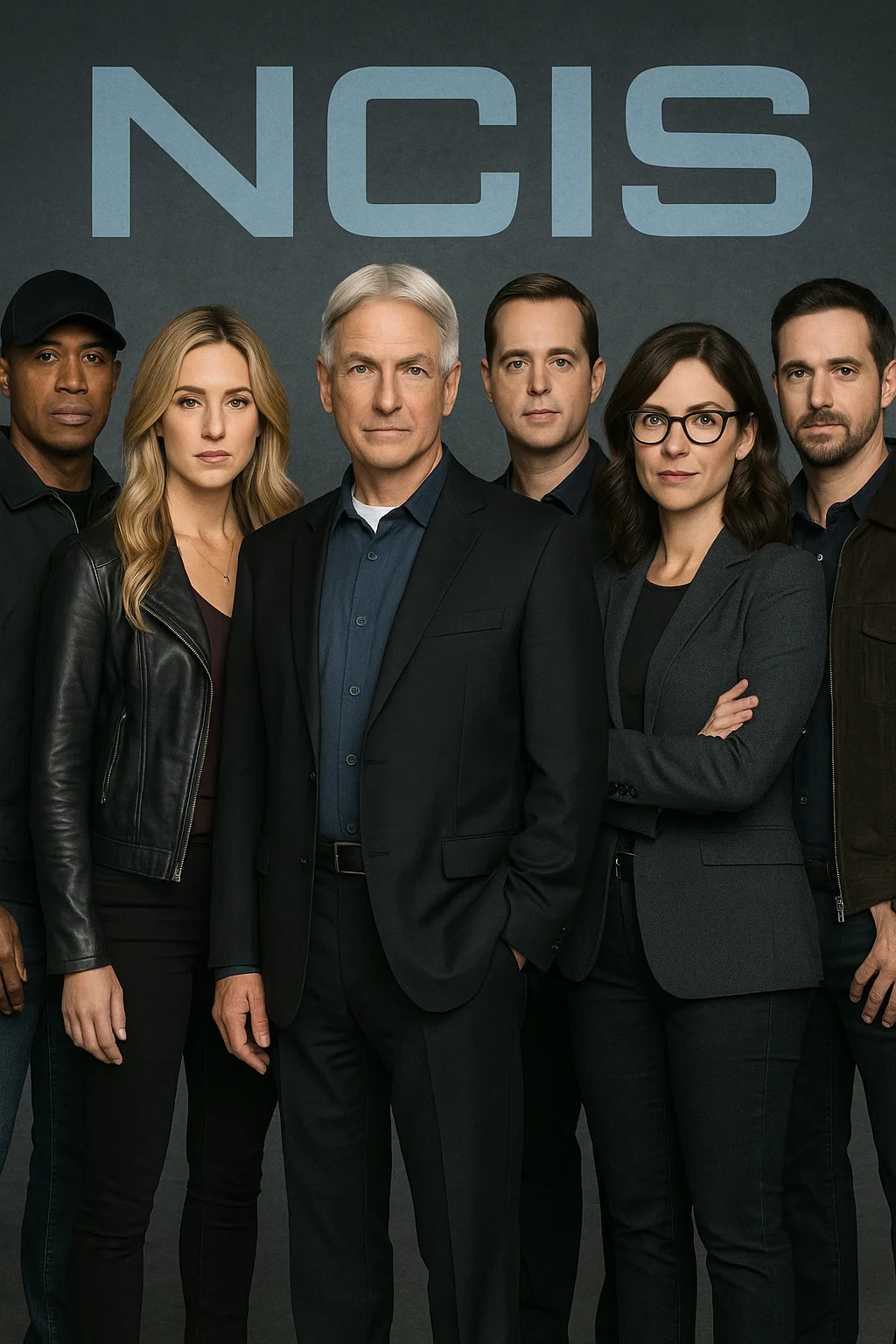
For two decades, the NCIS franchise has thrived on its ability to reinvent itself. We’ve seen new teams, international spin-offs, emotional departures, and jaw-dropping crossovers that brought beloved characters together. The 2023 three-hour crossover between the flagship series, NCIS: Los Angeles, and NCIS: Hawai’i remains one of the franchise’s most celebrated television events. But in 2025, CBS is swinging for the fences once again—with a crossover that isn’t just ambitious. It’s unprecedented.
This fall, the network confirmed that NCIS will team up with its newest spinoff, NCIS: Origins—a prequel set in the 1990s following a young Leroy Jethro Gibbs (Austin Stowell). And somehow, these two shows—separated by three decades of storytelling—will collide in a two-hour primetime event.
The question is obvious: how on earth is this going to work?
A Case That Refuses To Die
Origins already made history by being the franchise’s first prequel, pulling back the curtain on Gibbs’ earliest days as a probie in the old NIS. Now, CBS has revealed that the November 11 crossover will be framed around “a case that spans decades.”
According to the official logline: “Gibbs and his team investigate the small-town death of a naval officer in the ’90s on NCIS: Origins — a case that’s unexpectedly re-opened in the present day on NCIS.”
In other words, Gibbs’ unfinished business will come back to haunt Torres (Wilmer Valderrama), Parker (Gary Cole), and the current MCRT. The promo teaser already has fans buzzing: Torres staring down a decades-old crime scene file while young Gibbs appears on the split screen, baffled by Torres’ “futuristic calculator” (a smartphone).
Time travel? No. Time echoes? Absolutely.
How the Timeline Trick Works
On the night of the event, Origins will air first in the 8 p.m. slot, presenting Gibbs’ original investigation. Then, without missing a beat, the flagship NCIS picks up immediately afterward, showing the case re-opened in the present.
At first glance, it may feel like two back-to-back episodes—but the writers are aiming higher. The key will be weaving in clever connective tissue:
-
Old case files with Mike Franks’ (Kyle Schmid) scrawled notes.
-
1990s forensic limitations clashing with today’s cutting-edge tech.
-
Little character quirks in Origins that have ripple effects in the modern storyline.
It’s less about characters speaking across time and more about the weight of the past colliding with the present—an approach perfectly suited for NCIS’ investigative DNA.
The Challenge: Tone and Continuity
Pulling this off won’t just be about plot logistics. To truly feel like a crossover, the episodes need to share a unified tone. That means suspense, intrigue, and a steady escalation of clues that justify why Gibbs couldn’t close the case then—and why Torres and Parker can now.
Fans will also be looking for nods to larger character arcs: Lala’s (Mariel Molino) uncertain fate in Origins, Parker’s grief in the flagship, and how Gibbs’ younger self mirrors the man he became.
Get it wrong, and it risks feeling like two disconnected episodes. Get it right, and it could be television magic.
A Familiar Face to Tie It All Together
One particularly intriguing element: the return of Dr. Donald “Ducky” Mallard. Though the late David McCallum’s version will forever be iconic, Origins has cast Adam Campbell as a younger Ducky for a tribute episode. His appearance proves the franchise is willing to blur timelines using past and future versions of characters. Could he, or others, help stitch the crossover together?
While most of Origins’ cast doesn’t overlap with the flagship show—Gibbs is retired, and Mike Franks is long gone—the writers could introduce legacy cameos or echoes of familiar names. If CBS was bold enough to revive young Ducky, the door is open.

Why This Could Be NCIS’ Boldest Swing Yet
It’s rare for procedural TV to bend the rules of time without veering into sci-fi. But NCIS has always thrived on bending formulas just enough to keep viewers guessing. By daring to tell one story across two eras, CBS isn’t just chasing nostalgia—it’s showing that the franchise can still surprise us after 20+ years.
If pulled off, this event could rival, or even surpass, the epic three-way crossover of 2023. And once the dust settles, NCIS will be able to claim something no other crime procedural can: it made a crossover work across 30 years of history.
For a franchise built on solving the impossible, maybe it’s only fitting.